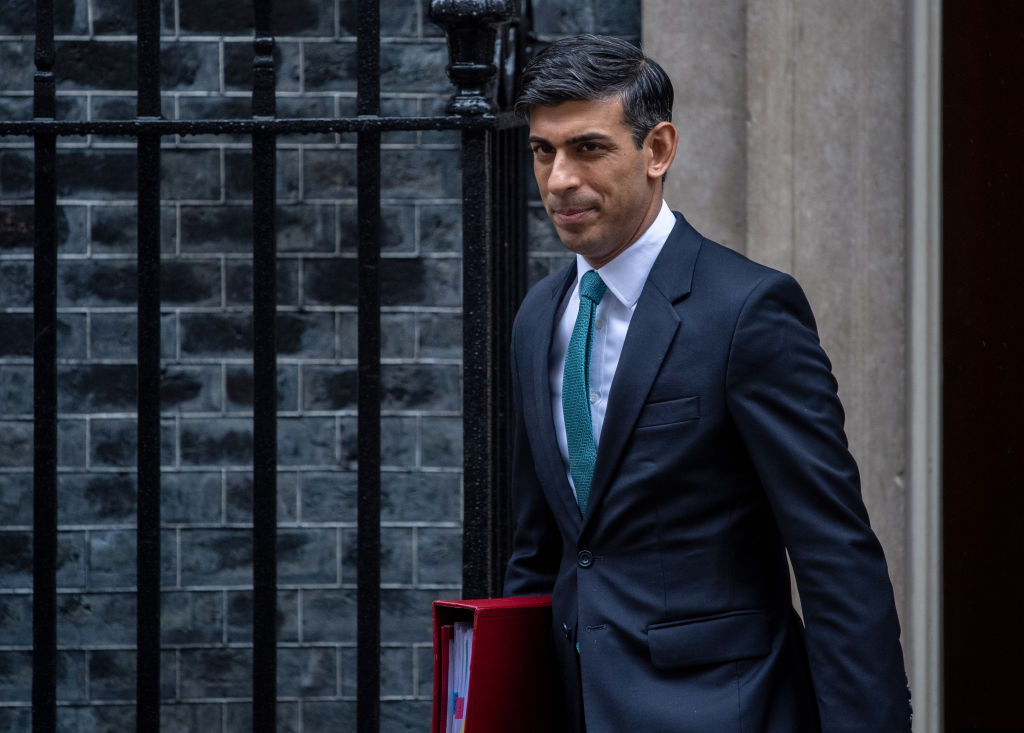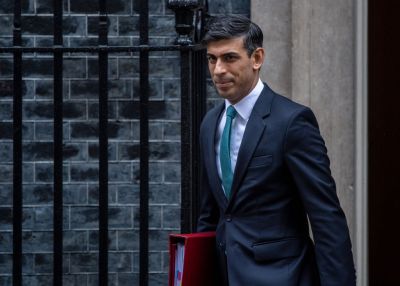In a diplomatic coup for Prime Minister Rishi Sunak, the British government has struck a new deal with the European Union on the future of Northern Ireland.
The so-called “Windsor framework,” Sunak told reporters last week, represents a “decisive breakthrough” in post-Brexit relations and “a turning point for the people of Northern Ireland.”
But why did the Windsor Framework, or the Northern Ireland Protocol before that, have to be negotiated in the first place?
By the summer of 2019, three years since the U.K. had voted to leave the European Union, politicians at Westminster had failed to decide on a Brexit plan and the public was exhausted.
Unlike his more conciliatory predecessor Theresa May, new Prime Minister Boris Johnson promised British voters a strong exit with the details to be sorted out later.
One of the thorniest details to be sorted was the matter of the border between Northern Ireland and the Republic of Ireland.
As co-members of the EU, both the U.K., of which Northern Ireland is a part, and the Republic of Ireland had been members of the European customs union—ensuring tariff-free internal trade—and the European single market ensuring free movement of goods, capital, and labor across borders. The European courts set and enforce rules and regulations within both blocs.
A truly independent economic foreign policy, Brexiteers argued, meant leaving both the customs union and the single market.
The stakes were potentially higher on the island of Ireland, however. The Good Friday Agreement, brokered by the United States in 1998 to resolve the Troubles, guaranteed an “all-island economy” without cross-border tariffs or border checks. Northern Ireland sent nearly 2 billion British pounds worth of exports south in 2016—around a quarter of total exports (the next-highest destination was the United States, at 1.7 billion pounds).
Theresa May and Boris Johnson would ultimately settle on a compromise. Northern Ireland would remain within the European customs union and aligned to some single market regulations until a better deal could be reached. This remains a feature of the Windsor framework.
What’s so good about the new deal then?
There is still an Irish Sea border—goods going from mainland Britain to Northern Ireland undergo customs checks to ensure alignment with European laws still active in Northern Ireland.
A more efficient process has been agreed, however, to remove customs checks on certain goods and those remaining in Northern Ireland.
The deal also allows the Northern Ireland assembly to block changes to European rules. The so-called “Stormont Brake” is a sop to the Democratic Unionist Party (DUP), the largest party in Northern Ireland. They said they’d filibuster local politics until national sovereignty was respected. And that’s what they did.
“Sunak secured more than expected on goods and democratic scrutiny by being reasonable and calm with the EU,” argued Iain Martin, a columnist for the Times of London, last week.
The deal’s future, however, now depends on Parliament—where Sunak must court favor with Northern Ireland’s DUP and leading Euroskeptics.
“May I remind the Prime Minister that although he talks about 1,700 pages of EU law being removed from Northern Ireland, hundreds of thousands of pages will remain,” argued Sammy Wilson, MP for East Antrim and DUP party whip.
While the likelihood of a dispute over EU regulations is made less likely by the new fast track procedure for some goods, the European Court of Justice still has final jurisdiction if and when a dispute arises.
Key players in the Brexit movement have nonetheless backed the deal—with Euroskeptic backbencher Steve Baker breaking into tears over what he calls an “act of great statesmanship.”
And the White House has commended the new deal ahead of a visit in April to mark the 25th anniversary of the Good Friday agreement.
Then there’s Boris. The former prime minister has indicated he will not be voting for the deal, though acknowledged that the public is exhausted with Brexit.
Sunak hopes to bury the hatchet with Britain’s largest trading partner and strategic ally by dealing in good faith. Johnson had also tried to amend the protocol by unilaterally withdrawing—but Parliament rejected the Internal Market Bill, arguing it violated Britain’s international treaty obligations. They rejected a second amendment in 2022.
More voters today say they regret their decision to vote for Brexit. If Northern Ireland’s future has been saved by smoothing trade with Europe, many ask, why did we leave the single market in the first place?
Practical, issues-based diplomacy, however, has delivered results. By 2022 inter-Irish trade had more than doubled to more than 5 billion pounds, 40 percent of Northern Ireland’s trade in goods.
The framework is not perfect, but it might be as good as it gets.





Please note that we at The Dispatch hold ourselves, our work, and our commenters to a higher standard than other places on the internet. We welcome comments that foster genuine debate or discussion—including comments critical of us or our work—but responses that include ad hominem attacks on fellow Dispatch members or are intended to stoke fear and anger may be moderated.
With your membership, you only have the ability to comment on The Morning Dispatch articles. Consider upgrading to join the conversation everywhere.